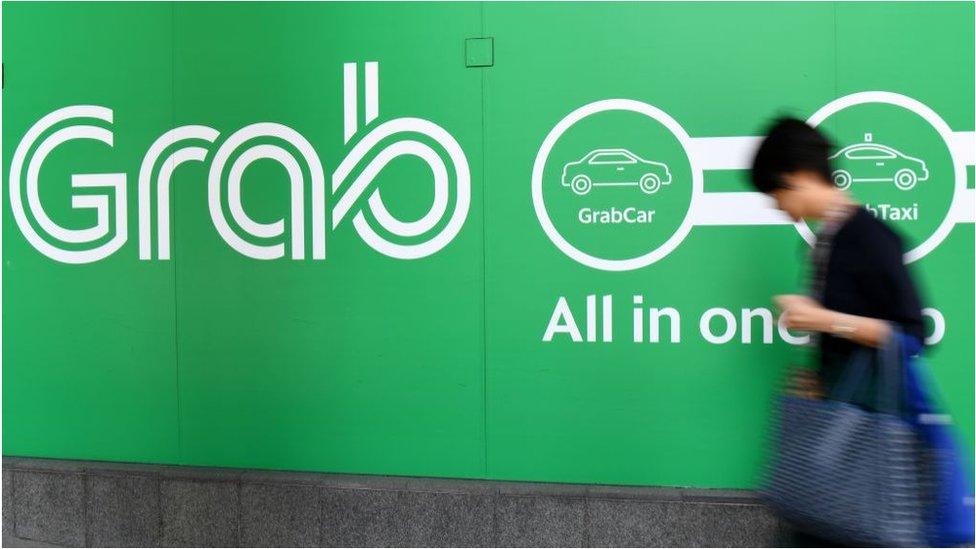Grab seeks US listing with $40bn valuation: report
- Published

A woman walks past the Grab transport office in Singapore.
Grab is reportedly in talks about a stock market listing that could value the company at $40bn (£28.6bn).
The Singapore-based firm started as a ride-hailing app and is one of South East Asia’s best known tech companies.
Grab is discussing a deal with a special-purpose acquisition company (Spac), the Wall Street Journal reported.
Spacs are set up with the purpose of buying a private firm to merge with and then take public on the stock market.
Spacs, also called "blank cheque companies", have seen a surge of popularity in recent years, and are seen as a faster route to taking a company public with less scrutiny.
The parties could reportedly announce a deal in the next few weeks, with the goal of listing in the US.
Grab is expected to raise between $3bn and $4bn from private investors, according to the report.
"We're not sellers, we're buyers"
Leader in South East Asia
Grab includes Japanese conglomerate Softbank and Toyota among its key backers, and has most recently been valued at around $15bn.
Since the company was established in 2012, it has emerged as the dominant ride-hailing app across much of South East Asia.
Grab bought out Uber’s South East Asian operations in 2018, in a deal which left the US ride-hailing giant with a stake in the company.
The deal caused monopoly concerns among regulators, who fined the two companies more than $4.8m each.
Grab has further expanded its services to become one of South East Asia’s emerging super-apps, after branching out into restaurant and grocery deliveries and financial services for merchants.
Grab and its Indonesian rival Gojek were until recently considering a merger.
However, it now appears Gojek is seeking a tie-up with Indonesian e-commerce leader Tokopedia ahead of its own listing in Jakarta and the US.
Grab declined to comment when contacted by the BBC about its listing plans.

Grab's founder Anthony Tan has always had big ambitions for the super-app.
When I interviewed him in 2018, he was trying to carve out a name for the company, taking an Asian company global.
In the last three years, he and his team have achieved much of that - expanding across Indonesia, Vietnam and the Philippines, turning into a financial app from a transport firm.
But running a business like this takes money, and by some estimates, Grab won't break even until 2023.
The company maintains it is profitable in some divisions, but Mr Tan also needs access to funds to continue his expansion plans. So far he's relied on the largesse of investors with big pockets.
Grab may be betting that the timing for an IPO is right - several Asian tech companies that aren't making much in the way of profits have listed successfully recently, partly because there's a lot of liquidity in stock markets.
But a listing would also give investors an insight into how much profit Grab is actually making - which could prove to be far less advantageous for the firm.
